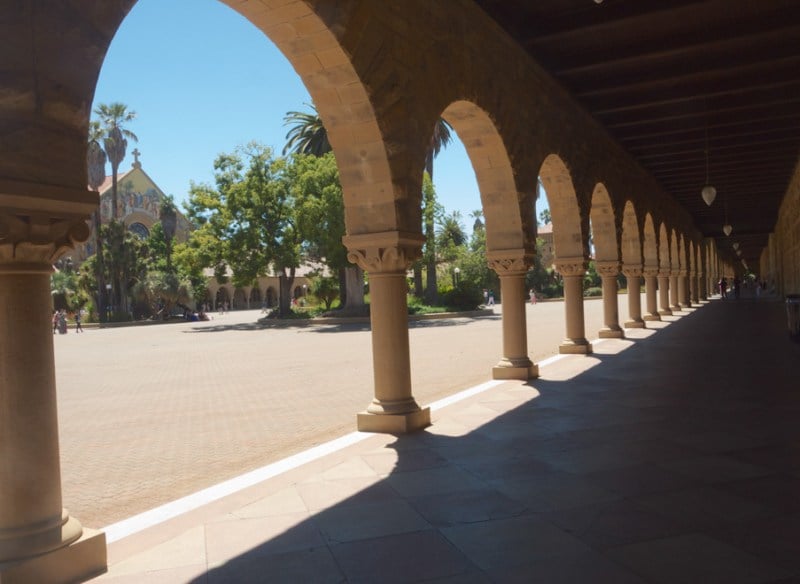Stanford’s Office of Student Engagement (OSE) has established the Solidarity Fund for student groups addressing issues of racism and injustice in response to nationwide protests against racism and police brutality.
Vice Provost for Student Affairs Susie Brubaker-Cole sent an email to students on June 4 detailing the creation of new resources and support systems amidst growing concerns over police brutality and racism.
“The Office of Student Engagement (OSE) wants to recognize the immense efforts that many of you and your organizations have coordinated to advance educational and healing efforts in our community relating to diversity and inclusion,” Brubaker-Cole wrote. “We have established the Solidarity Fund to advance the work of Registered Student Organizations (RSOs) now and through the summer.”
The fund, which is available on a first-come, first-serve basis, is open to all registered student organizations, including both graduate and undergraduate organizations. According to Ankita Rahke, Student Affairs Fellow and Assistant Dean of Student Support, 11 student groups have received $20,000 in total to date. Rahke said that contributors to the fund include the Vice Provost of Student Affairs, the Stanford Fund and Cardinal Nights.
Organizations that have received funds include Stanford Women in Politics (SWIP), Stanford Concert Network, Alpha Chi Omega (AXO), Alpha Kappa Alpha, the Black Graduate Student Association, along with several others.
These groups are using the funds for a variety of social justice-centered activities, including book clubs, poetry readings, care packages, virtual concerts and virtual dance classes.
Sarah Goodman ’20, former president of SWIP, is leading the group’s book club, which received $892 from the Solidarity Fund.
“We had previously been awarded a Stanford Arts grant to launch a summer book club,” Goodman wrote in a statement to The Daily. “We applied to continue this book club with a book by a Black feminist author to increase the accessibility of discussion of Black feminist theory, intersectionality and womanism.”
Although Goodman “appreciates that OSE took a meaningful step to use its power to support the Black Lives Matter movement,” she also acknowledges that this fund is “not sufficient on [its] own.”
“If the University values these discussions in a book club, they should value the academia that surrounds Black feminism and departmentalize African and American Studies (AAAS),” Goodman noted, referring to community efforts to urge the University to expand the AAAS program to a department (with associated resources and funding that come with departmentalization). “The small support without the serious reform, though appreciated, is not enough.”
Noor Fakih ’22, president of AXO Stanford, shares similar views. AXO received $800 from the Solidarity Fund for their poetry event series, Appreciate Black Artists (ABA).
Although Fakih has “seen positive things” result from ABA, including an increase in productive dialogue surrounding allyship, she also acknowledges that Stanford cannot “expect students to continue doing the legwork.”
“We need to see Stanford give the MLK Institute the respect it deserves, hire more Black faculty, allow AAAS to become a department with stable staff, and address the fact that campus police are always in front of Ujamaa,” she said, referring to multiple anecdotal accounts that there seem to be more campus police outside the Black focus ethnic-themed dorm than is outside residences on east campus. Stanford University Department of Public Safety (SUDPS) spokesperson Bill Larson has previously told The Daily that “as a general rule, one deputy is assigned to the west side of campus and one to the east side of campus.”
President Marc Tessier-Lavigne addressed growing concerns over the University’s treatment of Black studies and Black faculty by announcing a number of new initiatives to combat racism at Stanford. These include the hiring of 10 new faculty members focused on the impact of race in America, the introduction of several new diversity and inclusion fellowships and the creation of the Center for Racial Justice at Stanford Law School.
Larson added that SUDPS and its personnel are “supportive of exploring ways in which [the public safety department] can best serve the community” and that they look forward to the Community Board on Public Safety being an avenue for community discussion around the way in which policing is done on campus. The creation of the Community Board is an effort to build “communication and trust” between SUDPS and the broader campus community.
When asked whether the OSE plans to extend the fund past the summer of 2020, Rahke wrote that, “our hope is to continue to provide ongoing support to student programs and initiatives that contribute to a sense of belonging and creating an inclusive campus community.”
Contact Nina Iskandarsjach at ninaisk ‘at’ stanford.edu.
